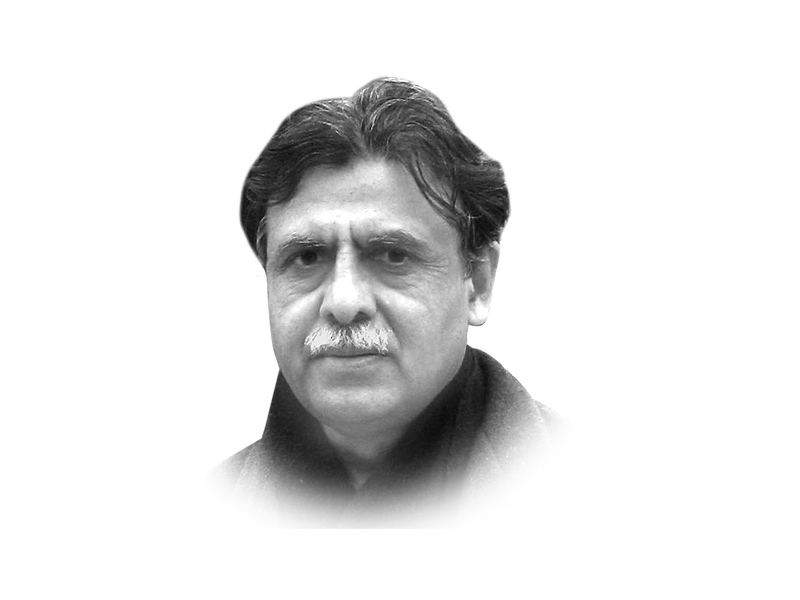
Going back to the referendum in Scotland, it has indeed been a momentous event. As a result of it, the people from the highlands have given their verdict, which could be read either way. The Scottish First Minister, Alex Salmond, who led the campaign for independence, accepted the verdict with an open mind. The union has survived but it will not remain the same Great Britain. It largely depends now on the vision and action plan of Westminster as to how a new settlement is to be worked out with it facing irresistible pressure to change the rules of the game.
Scottish parliament acts have already laid ground for more autonomy by underpinning certain key devolved functions, giving legislative powers to the regional parliament in areas like education, health, agriculture, local government, policing, etc. But is this enough to satisfy the demands and yearnings of the solid vote bank that stood for a complete break from Westminster? Those who opted for the union also hold reforms and change high on their agenda. Devolved powers, so far, confer upon Scotland the status of an exalted municipal entity, while real powers of monies and the wallet still lie with London. Apart from the reserved powers like defence, immigration, employment, trade, energy, oil and gas, matters like consumer rights, entertainment, anti-competitive practices, electricity, road transport and the motor vehicle act are still vested with Westminster as are matters related to taxes and excise duties. There cannot be a meaningful settlement within the union of the United Kingdom if fiscal and administrative autonomy is not given to its constituents — in this case, powers to incur debt and raise taxes.
The pro-union result in Scotland has raised more questions than it has answered. Questions are now being asked about whether Scottish parliamentarians should be allowed to legislate on matters falling within the devolved jurisdiction of England and whether England should have a separate parliament in this regard. An answer to these issues will have implications for the entire political system of the UK and on its political parties, especially Labour, which has a strong presence in Scotland. One hopes that the mother of democracy — the British parliament — will wade through this muddle successfully.
The Scottish referendum has underlined one distinct fact: there are peaceful ways to resolve even the most sensitive and inflammatory of issues. One can only wish that we in Pakistan were even half as wise. But that is clearly not so with the 1971 national tragedy being a case in point, which resulted in a bloody civil war and dismemberment of the country. The dangerous move of finding a military solution to a political problem resulted in disaster.
Coming to the specifics of creating more units in Pakistan, despite provincial assembly resolutions for creating provinces in south Punjab and Hazara, it would be a most difficult to achieve when it comes to drawing the lines on the ground and in the boardroom. Autonomist movements all over the world, including in our neighbouring country, always spelt out the precise boundaries before the fruition of such an exercise. In Pakistan’s case, given the share over natural and financial resources that is provided to provinces, achieving an agreement on the details could be as daunting as reaching a consensus on building the Kalabagh Dam. Let us find a way out through a lean, slick, devolved mechanism, empowering our distinct regions without tampering with the existing configuration of the federating units. If more provinces were the solution to the problems that we currently face, then the north-eastern Indian region should have been the most prosperous and peaceful area around. The Indian state of Assam was split into seven states or provinces, yet it continues to be the most volatile and insurgency-prone region of India, festering with bloody clashes and being notorious for ethnic cleansing.
Published in The Express Tribune, October 4th, 2014.
Like Opinion & Editorial on Facebook, follow @ETOpEd on Twitter to receive all updates on all our daily pieces.
COMMENTS (9)
Comments are moderated and generally will be posted if they are on-topic and not abusive.
For more information, please see our Comments FAQ













@Toticalling: Turks in Germany and Pakistanis in UK have hundreds of areas which are virtually under their control and out of bounds for not only the UK police and fire depts but also for the legally elected representative for the area if he happens to be non muslim.
Too much nationalism never did anybody any good.
Jharkhand and utrankhand as new states in India have shown better growth profile because of their resource endowment as mining areas , an edge which was even other wise available to the region . The author while giving example of Assam has indeed made a pertinent reference to ethnic and racial cleavages which have become more volatile after the split into more states . We certainly wish to move towards devolved governance but in the words of former British Prime Minister , John Major , while responding to proposal for a federation for Great Brutain aptly remarked, " have more politicians as is not the answer to the question .
"Our political leaders have a tendency to tinker with latent, yet highly sensitive issues, without doing proper homework, this episode being one such example. Demand for more administrative units certainly does require more clarity in terms of its impact on the existing four provinces and our broad political framework. As we dilate on the subject, we need to be very clear on the fact that provinces in Pakistan are political entities, while administrative units are represented through civil divisions and districts. The two need to be kept distinctly apart for the sake of clarity."The author has wisely pointed out the real issue. Unfortunately there might be many politicians who may claim to be qualified but there might be few who might be educated..and might be interested in educating themselves through books..They breed on the information provided by the half baked intellectuals of their liking and the results are obvious..
..The Indian state of Assam was split into seven states..
Do you even read what you write?
Before that you argue: ..If more provinces were the solution to the problems that we currently face, then the north-eastern Indian region should have been the most prosperous and peaceful area around....
By having more states, India has been able to diffuse tensions in a larger states that were artificially demarcated by the british. In case of Pakistan, having a large dominate state like punjab does create tensions among other stake holders in the nation of pakistan. What pakistanis want to do with punjab is up to the pakistanis, however, as a neutral observer, it does make sense to break up punjab into smaller states to be fair to the other provinces.
After independence, the organization of States in India was done on the recommendations of The State Reorganisation Commission under Chairmanship of Justice Fazal Ali. The Commission recommended reorganization of India on linguistic basis.
India is a land of linguistic diversities of different scripts, dialects etc. and demand for reorganization of States on linguistic basis grew even before partition. It also culminated into Part A, B, C and D States. On recommendation of Fazal Ali Commission the Parliament of India passed States Reorganisation Act, 1956. After this primary exercise, many new states/ UTs were created due to territorial mergers (Sikkim, Goa and Pondicherry), linguistic/ cultural basis (Nagaland, Mizoram), geographical basis (Uttaranchal, Jharkhand) etc. It is true that politics also plays its role in such creation of States as we have seen recently in case of bifurcation of Andhra Pradesh. In India, the diversity or creation of more States is not a threat to its Unity. It binds us more, makes us more competitive and make us prosper collectively.
There is nothing wrong with creating more administrative units. Take the example of Switzerland, a very devolved country of 8 million people, it has 26 cantons. And this country has 4 official nationalities.
The reason that the NE states are not the most prosperous has to do with their location and not their size - poor growth is an outcome of political instability and not size. States like Uttarakhand and Chattisgarh which were carved out of much larger states are excellent examples for the economic benefit of having smaller states - both have experienced robust growth in the last 10 years. The author would do well to spend some time studying all the smaller states in India and their per capita GDP ranking before coming to half-baked conclusions based on shallow understanding of the subject.
Comparing Scotland with Sindh is not accurate. Scots have lived in their country for thousands of years and all they wanted was to show that they should be teated equally, as England makes most of the rules and decisions. And over 55% decided to remain within Great Britain. Good luck. In Pakistan these want administrative units is nothing less that asking for a separate province. Who are these people who initiate such ideas? They are first and second generation Pakistanis who migrated from India less than 65 years ago. They are not punjabis, or Pathans who have settled in Sindh, but MQM followers. Many Pakistanis and indians living in England do not demand such irresponsible ideas. Like wanting to run a part of UK. The same can be said of Turks in Germany. May be in a few hundred years, but not now.